第26章
For Nekhludoff this early mass remained for ever after one of the brightest and most vivid memories of his life. When he rode out of the darkness, broken only here and there by patches of white snow, into the churchyard illuminated by a row of lamps around the church, the service had already begun.
The peasants, recognising Mary Ivanovna's nephew, led his horse, which was pricking up its cars at the sight of the lights, to a dry place where he could get off, put it up for him, and showed him into the church, which was full of people. On the right stood the peasants; the old men in home-spun coats, and clean white linen bands [long strips of linen are worn by the peasants instead of stockings] wrapped round their legs, the young men in new cloth coats, bright-coloured belts round their waists, and top-boots.
On the left stood the women, with red silk kerchiefs on their heads, black velveteen sleeveless jackets, bright red shirt-sleeves, gay-coloured green, blue, and red skirts, and thick leather boots. The old women, dressed more quietly, stood behind them, with white kerchiefs, homespun coats, old-fashioned skirts of dark home-spun material, and shoes on their feet.
Gaily-dressed children, their hair well oiled, went in and out among them.
The men, making the sign of the cross, bowed down and raised their heads again, shaking back their hair.
The women, especially the old ones, fixed their eyes on an icon surrounded with candies and made the sign of the cross, firmly pressing their folded fingers to the kerchief on their foreheads, to their shoulders, and their stomachs, and, whispering something, stooped or knelt down. The children, imitating the grown-up people, prayed earnestly when they knew that they were being observed. The gilt case containing the icon glittered, illuminated on all sides by tall candles ornamented with golden spirals. The candelabra was filled with tapers, and from the choir sounded most merry tunes sung by amateur choristers, with bellowing bass and shrill boys' voices among them.
Nekhludoff passed up to the front. In the middle of the church stood the aristocracy of the place: a landed proprietor, with his wife and son (the latter dressed in a sailor's suit), the police officer, the telegraph clerk, a tradesman in top-boots, and the village elder, with a medal on his breast; and to the right of the ambo, just behind the landed proprietor's wife, stood Matrona Pavlovna in a lilac dress and fringed shawl and Katusha in a white dress with a tucked bodice, blue sash, and red bow in her black hair.
Everything seemed festive, solemn, bright, and beautiful: the priest in his silver cloth vestments with gold crosses; the deacon, the clerk and chanter in their silver and gold surplices; the amateur choristers in their best clothes, with their well-oiled hair; the merry tunes of the holiday hymns that sounded like dance music; and the continual blessing of the people by the priests, who held candles decorated with flowers, and repeated the cry of "Christ is risen!" "Christ is risen!" All was beautiful; but, above all, Katusha, in her white dress, blue sash, and the red bow on her black head, her eyes beaming with rapture.
Nekhludoff knew that she felt his presence without looking at him. He noticed this as he passed her, walking up to the altar.
He had nothing to tell her, but he invented something to say and whispered as he passed her: "Aunt told me that she would break her fast after the late mass." The young blood rushed up to Katusha's sweet face, as it always did when she looked at him.
The black eyes, laughing and full of joy, gazed naively up and remained fixed on Nekhludoff.
"I know," she said, with a smile.